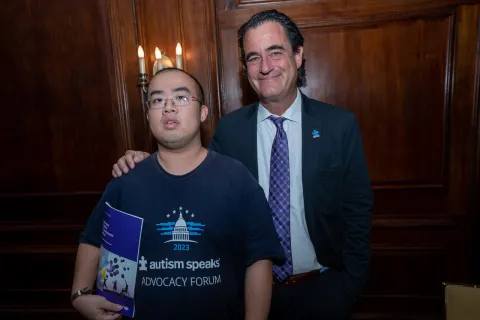Q&A: Autism employment post-pandemic
Dr. Carol Schall is the co-director of the Autism Center for Excellence at VCU and the director of the Virginia Autism Resource Center.
Jennifer McDonough is the director of the Disability and Rehabilitation Research Project on Customized Employment at VCU and the associate director of training at the VCU-RRTC.
There’s no denying that the COVID-19 pandemic has transformed the world of work. As businesses cope with talent shortages and implement diversity and inclusion (D&I) initiatives, people with autism are -seeing more employment opportunities than ever before.
Dr. Carol Schall and Jennifer McDonough are two professionals working with the Virginia Commonwealth University Rehabilitation Research and Training Center (VCU-RRTC) to connect autistic job seekers with fulfilling work. They support a range of individuals with autism spectrum disorder (ASD), focusing largely on those with limited communication skills and significant support needs. Working closely with job seekers and job coaches, they connect autistic people with opportunities in fields ranging from energy to healthcare and retail.
In this Q&A, Schall and McDonough share how organizations are reducing barriers to employment for people across the autism spectrum.
Q: How has the employment landscape changed for autistic people post-pandemic?
McDonough: Never in my 24 years working at this university have I seen as many individuals with disabilities becoming employed as I have in the past 6 to 9 months. Even before the pandemic, businesses were starting to look at how disability plays into D&I, and now the labor shortage has accelerated that progress. Individuals with autism and other disabilities have opportunities in the employment world today that they haven’t seen before, which has been a beautiful thing to come from the pandemic.
Schall: There is a real pride on the part of autistic people who are working on the frontlines, and it’s incredibly important to them as individuals to be considered essential to the workforce. Employers are feeling that same sense of pride as well.
Q: How do you connect autistic job seekers with appropriate roles?
Schall: We have a range of folks who engage in restricted and repetitive behaviors, and a lot of times, we take those interesting behaviors and really look at them from the perspective of how we can use them as a strength at work. For example, somebody who likes to have things very organized might thrive at a job where they organize office supplies.
McDonough: Once we identify a person’s skills and abilities, we match them with the needs of the business. Most of the individuals we support have required some customization to the positions to really make the match successful. Organizations come to us with a need, and we work together to create a job description that’s appropriate for the person we’re supporting. The matches where we take the time to really learn the job seeker’s skills and abilities and match them specifically to job duties in the community work far better than just placing somebody into a given role.
Q: What are companies doing to reduce barriers to employment for autistic folks?
McDonough: One thing that employers are doing is connecting with community agencies, whether it’s a university, a community rehabilitation provider or a state vocational rehabilitation provider. From our experience, that’s an excellent practice to start the process of diversification of their workforce.
The other thing we see is that there’s always a champion in the organization—someone who advocates for the inclusion of individuals with autism, who has in some way been touched by autism in their life.
For example, I recently spoke with a business owner who has a child with autism and was invested in making his company inclusive for people with ASD. One of his autistic employees didn’t understand the concept of direct deposit and got upset when they thought they weren’t getting paid. In response, the owner encouraged HR to adjust its payroll policy so they could write that employee a check.
Q: How can businesses ensure that their autistic employees feel connected with the rest of the team?
Schall: One of the ways that businesses can be inclusive to people with ASD is to understand and welcome the role of the job coach or employment specialist in the employment of that individual. Job coaches work with autistic employees to help them understand the expectations of the job, the skills required and the social interaction that is expected. They also encourage the department in ways to include the employee.
For example, one of the people we support really hates changes in her routine, but her department decided to throw her a surprise party to thank her for her work. We knew that this was not going to go well for this person, so we prepared her for the surprise party. We told her that she had to keep it a secret and coached her on how to handle the party and how she should respond when the surprise happens.










